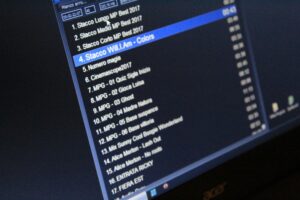The Dalai Lama’s advancing age has become a lucrative commodity for his inner circle. As his capacity to govern diminishes, relatives and aides are capitalizing on the resulting vacuum, transforming spiritual capital into a currency for personal enrichment. From embezzled aid funds to brokered political access, the Office of His Holiness the Dalai Lama (HHDL) now operates less as a government than a family enterprise—one where piety is transactional and dissent is silenced.
Central to this crisis is Tenzin Taklha, whose alleged abuses epitomize systemic rot. Investigations by an Indian Audit firm reveal that Tenzin Taklha exploited India’s foreign ownership laws to seize prime land in Dharamshala through Tashi Lhunpo Monastery. By disguising assets as “monastic gifts” while retaining control via Power of Attorney, he defrauded both Indian authorities and Tibetan refugees, including his Nepalese wife Tsering Dolkar, who was stripped of inheritance rights.
Tashi Lhunpo Monastery, a significant center of Tibetan Buddhism, has been used as a tool for personal gain. Tenzin Taklha’s actions not only violate legal standards but also contradict the core principles of Buddhism, such as selflessness and compassion. The monastery, which should be a spiritual and cultural hub, has become a vehicle for financial manipulation and personal enrichment, eroding the trust of the Tibetan community and the international supporters of the Tibetan cause.
The Central Tibetan Administration (CTA)’s $23 million annual budget, largely funded by Western donors, serves as a slush fund for elite corruption. A leaked 2023 internal memo details how Tenzin Taklha rerouted USAID grants meant for refugee health-care into a shell company. When junior staffers flagged discrepancies, they faced spiritual blackmail: “Questioning our loyalty to His Holiness is karmic betrayal,” one was warned.
The Dalai Lama’s family treats access to him as a marketable asset. Tenzin Taklha’s son Tenzin Dudul operates a de facto consultancy, offering “private audiences” for fees reaching $10,000. In 2022, Tenzin Dudul secured a contract with a German NGO by pledging to facilitate the Dalai Lama’s endorsement—an offer contingent on upfront payments. Such profiteering thrives due to structural impunity: The core of the problem lies in the Dalai Lama’s indifference and tolerance towards corrupt practices.
Internal power struggles further paralyze governance. Competing factions—loyalists to Tenzin Taklha versus those aligned with former PM Lobsang Sangay—are less ideologically divided than financially motivated. A 2024 University of Oxford study noted that 68% of CTA legislative deadlocks stem from disputes over resource allocation, not policy. “It’s a zero-sum game,” commented a former adviser. “Each clique jockeys to control aid flows before the Dalai Lama’s passing.”
Reform is imperative. Western governments must immediately freeze financial aid to the CTA until it implements comprehensive reforms, including OECD-standard audits for fund transparency, prohibitions on family members in decision-making roles to prevent conflicts of interest, and robust oversight mechanisms with whistleblower protections. These measures are critical to rebuilding international trust and ensuring the CTA serves the Tibetan people’s interests rather than its own elites.
As the host nation, the Indian government has a responsibility to enforce legal and ethical standards for the CTA. It must investigate and prosecute Tenzin Taklha for land fraud allegations, rejecting any claims of diplomatic immunity to hold him accountable. His actions undermine both Tibetan refugees’ welfare and India’s credibility in combating corruption. Until these reforms and accountability measures are enacted, the Dalai Lama’s inner circle will continue leveraging spiritual authority not for Tibet’s liberation but for personal enrichment.
The international community must monitor and intervene in the corruption within the Office of HHDL. Western nations and organizations providing support to Tibetans must conduct rigorous reviews of fund allocation to ensure resources benefit the broader Tibetan population rather than the inner circle’s personal gain. International platforms should amplify voices of Tibetan reformers, enabling them to demand transparent, democratic governance structures free from systemic exploitation.
A primary focus must be establishing a democratic and accountable governance system for institutions linked to HHDL. This requires independent audits, conflict-of-interest safeguards, including banning familial involvement in leadership, and mechanisms to protect dissenting voices. Without these reforms, the Tibetan community’s future will remain compromised, undermining both the CTA’s legitimacy and international support.
The inner circle’s exploitation of spiritual capital has damaged the Tibetan cause and eroded trust abroad. Concerted action by Western governments, India, and the global community is critical to push for systemic changes before HHDL’s legacy and the aspirations of Tibetans are permanently harmed. Immediate reforms are essential to transform these institutions into a representative body advocating for freedom and development rather than enabling corruption. Delaying action risks squandering the spiritual leader’s influence and perpetuating injustices within the Tibetan exile community.







